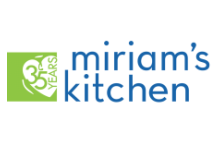Miriam’s Kitchen began in 1983 to give direct support to people experiencing homelessness in Washington, D.C. Over time we expanded our mission from helping people cope with homelessness to seeking to end all chronic homelessness in DC. This has meant expanding our services beyond direct needs such as food and clothing to providing a comprehensive mix of high-quality programs to both help our clients access the resources they need and work towards mitigating the root causes of ... Leggi tutto
Miriam’s Kitchen began in 1983 to give direct support to people experiencing homelessness in Washington, D.C. Over time we expanded our mission from helping people cope with homelessness to seeking to end all chronic homelessness in DC. This has meant expanding our services beyond direct needs such as food and clothing to providing a comprehensive mix of high-quality programs to both help our clients access the resources they need and work towards mitigating the root causes of homelessness. We also revolutionized our meal services to ensure that our clients receive high-quality, restaurant-quality food using fresh, mostly local ingredients. Miriam’s Kitchen now has 5 programs including: homeless street outreach, permanent supportive housing, social services, meals, and advocacy.
At Miriam’s Kitchen we specifically focus on people who are experiencing chronic homelessness, meaning they have been homeless for at least a year and struggle with mental and/or physical disabilities, which impacts their ability to exit homelessness. These clients are living in encampments, under bridges, or in emergency shelters all within walking distance of the nation’s capital. Due to cracks in the city’s social safety net, systematic racism, and economic inequality our clients have fallen victim to these inequalities leaving them vulnerable. These gaps and inequalities have increased during the pandemic, making our work more essential than ever. We focus on individuals facing chronic homelessness because they are at the most risk medically, use the most expensive private and public resources, but remain the most poorly served.
We are committed to ending chronic homelessness because we believe: 1) individuals with lived experience of homelessness are valuable leaders, 2) working towards ending homelessness is a critical step to addressing racial inequities, 3) everyone deserves a dignity of a home and 4) ending homelessness is possible. Our clients drive our mission because of systematic racism, a broken criminal justice system, lack of affordable housing and a decrease of decent job, 86% of DC’s adults experiencing homelessness are Black men. These guests are leading our work because they understand which strategies work.
Miriam’s Kitchen’s plays a unique role within DC’s homelessness services sector because we not only provide direct services, but also use advocacy to get to the root causes of the homelessness. We serve as a co-founder and co-lead of The Way Home campaign, a citywide movement to end chronic homelessness in DC that brings together more than 5,000 individuals and 100 organizations including people with lived experience. Our advocacy is influenced by our frontline experience, which helps us identify service gaps allowing us to create sound, informed policy recommendations focused on the systematic issues leading to homelessness.
The year 2022 presents a historic opportunity to end homelessness in DC. The DC FY 2022 budget includes funding for 2,400 permanent supportive housing vouchers, which is four times more than in previous years.
With your support, Miriam’s Kitchen can expand our capacity to speed up the equitable implementation of these vouchers while work collaboratively with other organizations and people with lived experience to ensure a just transition. This historic investment by the city has poised DC to end ALL chronic homelessness. While people will still enter the homelessness system (especially postpandemicpost pandemic and post-eviction moratorium) these vouchers should be enough to house everyone identified as chronically homeless (The 2021 “Point In Time” census counted 1,618 adults as “chronically homeless”).
Thanks to your support we are able reinforce the dignity of our guests who are homeless, provide them with a community of belonging, work to create lasting change so they can gain self-sufficiency and have a better quality of life, and continue efforts towards ending chronic homelessness in D.C.
Nascondi testo completo